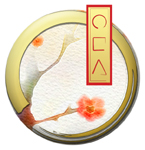It feels like a new idea. Mind is all. Physically, materially, mentally and spiritually — all. The length and breadth of the cosmos — mind. The yellow monarch butterfly flying around my feet on walk around snow bowl parking lot as I listened to final chapter of book on William Blake — mind. The final sip of water at dinner with friends from southern maine — all mind.
If there are interstellar travelers who traverse millions of light years in a blink of an eye, they might have mastered the folding of space to where origin and destination are side by side, stepping off point one onto point two, linearly a trillion miles away, as if stepping from bedroom to hallway on way to make coffee.
Quantum and astrophysics jot down their notes for us. Buddhists deliver their teishos. Christians run transubstantiation through our befuddled minds. Vedantists nod saying tat tvam asi, that thou art when pointing out everything from morning bird to overturned row boat. Taoists say, yes, Way, as everything sidles by and is sidled by our awareness.
Then Fa Yuan asked, “What are the Buddha, Dharma, and Sangha; what are the Three Jewels in One Substance? We beg you, Master, to explain.”
Hui Hai: “Mind is the Buddha, and it is needless to use this Buddha to seek the Buddha. Mind is the Dharma, and it is needless to use this Dharma to seek the Dharma. Buddha and Dharma are not separate entities, and their togetherness forms the Sangha. Such is the meaning of Three Jewels in One Substance. A sutra says:
“‘Mind, Buddha, and sentient beings—there is no difference between any of them. When your body, speech, and mind are purified, we say a Buddha has appeared in the world. When these three become impure, we say a Buddha has been extinguished.’
“Instead of recognizing the Buddha right in front of you, you spend eon after eon searching for him.
“His whole substance pervades all phenomena, but you are deluded and look for him elsewhere! Consequently, anyone who understands the Way is never off it, whether walking, standing, sitting or lying. Anyone who awakens to the Dharma is sovereign and at ease in all situations, since none of them are outside Dharma.”
Hui Hai (720-814)
—DailyZen, excerpted from Ch’an Master Hui Hai – Zen Teaching of Instantaneous Awakening translated by John Blofeld 1962
Our individual minds are small, our awareness constricted. (Look at the political playground these days.)
We seem to be a civilization of sharp knived dissection and mutilation. We don’t yet, it seems, see things whole, act with integrity, love all that is. Tall order. Slim pickings. Egoistic narcissism. A proverbial infantalized view of reality as something to be exploited, mafia’d, and pocketed.
And here we are.
Mind you.
With everything right in front of us, the invitation is continually issued — by the sublime reality — see me, feel me, touch me, heal me!
There are many ways to call the Buddha’s name, and throughout the Buddhist world devotees do so in one way or another. It may be “Namo Buddhaya,” “Namo Tassa,” or “Buddham saranam gacchami.” In China it may be “Omito Fo” and in Japan “Namo Amida Butsu.” In the West this last tends to be Anglicized as “Namo Amida Bu” in order to preserve the six-syllable form of many Japanese chants. This method of calling the Buddha’s name is known as nembutsu.
The term nembutsu means “mindfulness of Buddha.” Namo Amida Bu means “I call upon measureless Buddha.” However, in reality this practice is not an intellectual or cognitive assertion; it is an expression of sentiment and a way of opening one’s heart to receive. When one recites the nembutsu it is an expression of gratitude and wonderment but also an expression of whatever spiritual feeling is arising at that time. In this sense it is an offering of oneself and a reception of grace. Reciting nembutsu is a two-way street connecting you with Buddha. It is not a straitjacket, not an attempt to squeeze oneself into a prescribed form or arrive at a prespecified state of mind. Each time one says the nembutsu, something different may arise. Whatever one is, one offers, and one receives what one needs. The hallmark of Pure Land is great acceptance, and one of the most difficult things may be to accept that one is already accepted.
Cat comes in room. Complaining. Time for food.
Guests must be awake, time to make coffee.



